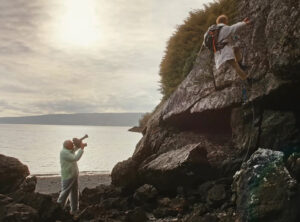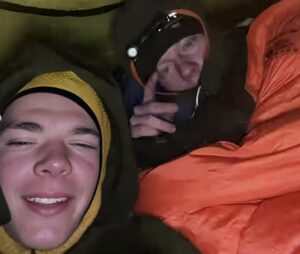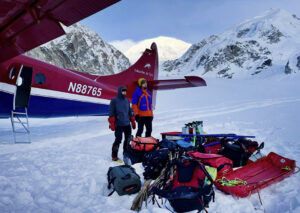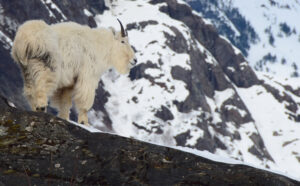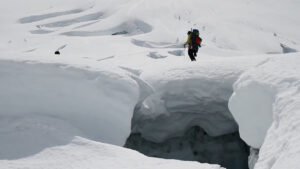We’re about halfway through the Denali climbing season and it’s certainly busy on the mountain’s upper reaches. On June 5, the season peaked with 620 climbers.
This season, there are 1,006 registered climbers, with the majority still climbing. The National Park Service (NPS) lists 255 completed climbs and a summit percentage of just 32% so far. Expect that figure to fly up to over 70% by the end of the season.
Plenty of people, plenty of emergencies
In our last update, we detailed the rescue of Japanese climber Tatsuto Hatanaka after a 300m fall on Denali, as well as the rescue of two climbers on Peak 11,300. Over the last two weeks, NPS park rangers have been called into action on three more occasions.
On May 30, a six-person ski-mountaineering team told NPS rangers that two members of their team were suffering from high-altitude cerebral edema (HAPE) at 14,200ft Camp. The more severe case was unresponsive and was also suffering from pulmonary edema.
The weather precluded helicopter rescue that night, and rangers performed 18 hours of advanced life support till Wednesday morning. The weather eventually allowed pickup and the patient was flown to Talkeetna for emergency treatment. The team member with moderate HAPE did not require evacuation.
Reading between the lines, the NPS dispatch report suggests that the ski-mountaineering team may have ascended too quickly.
“The patient was a member of a six-person ski mountaineering team that flew to the 7,200ft Kahiltna Base Camp on Saturday, May 27. The team ascended to the 14,200ft camp in two days,” the report states.

An NPS team at 14,200ft. Photo: NPS
On June 1, a team near Washburn’s Thumb (at around 4,900m) triggered their InReach; a team member was struggling to move. Once again, the weather made a rescue tricky, high winds stopped a ground team from ascending the fixed lines that night and instead, an “associated team” from High Camp descended to assist the struggling climbers down to 14 Camp. There, medics treated three people for frostbite.
There was another emergency at Camp 14 on June 5. A climber suffering from severe abdominal pain required overnight treatment but was eventually able to descend under their own steam to Base Camp.
Denali in the blink of an eye
Runner Jack Kuenzle has toppled Karl Egloff’s 11-hour 44-minute fastest-known-time on Denali.
Kuenzle appears to have smashed Egloff’s 2019 record by almost 90 minutes. He posted a provisional time of 10 hours and 14 minutes.
Information remains limited, but Kuenzle apparently stuck to the same style guidelines as Killian Jornet’s 2014 run (and presumably Egloff’s). He “carried all his gear…climbed rescue gully and never touched the fixed lines. The only water he picked up was cached at 14,000ft, as Kilian [Jornet] did,” Kuenzle’s social media post detailed.
Mount Foraker
Mount Foraker is experiencing another quiet season. Only eight climbers have registered for the peak with two climbs completed and zero summits registered so far.
A grizzly study
Elsewhere in the Denali National Park, there’s an interesting study going on. Park staff has closed an area of the Denali Park Road extending east of Polychrome Pass while they radio collar 18 grizzly bears.

Grizzly sow with two cubs in Denali, Alaska. Photo: Shutterstock
“This before-after-control-impact (BACI) study will assess changes in bear movement and habitat use along a 30-mile segment of the Denali Park Road. The non-traffic control period in 2023–24 will be compared to the impact period when high traffic levels resume in 2025, after completion of the Polychrome Area Project. Bear behavior will also be assessed along a non-impacted segment of the park road (where traffic continued throughout all years), east of the closure as a control site.”
You can read more about the study here.

